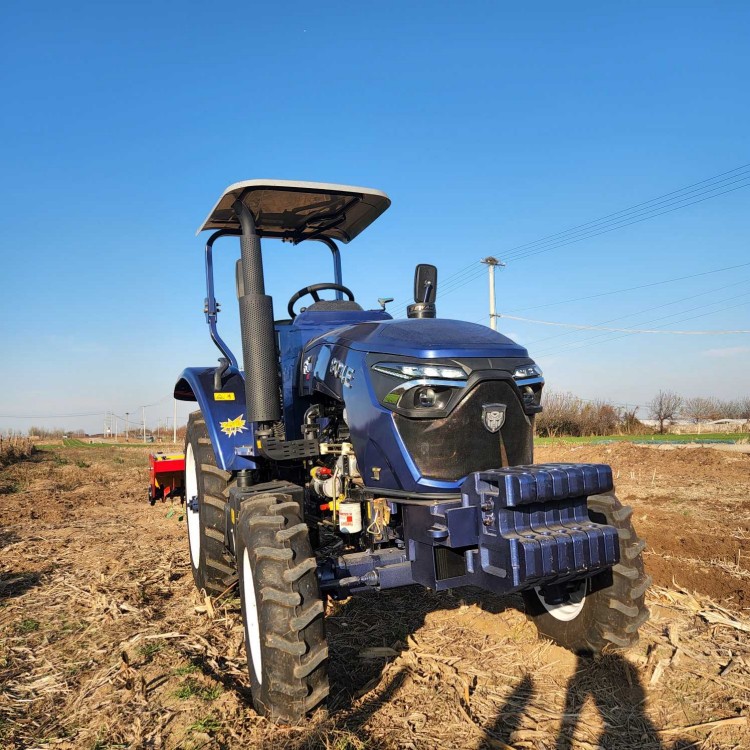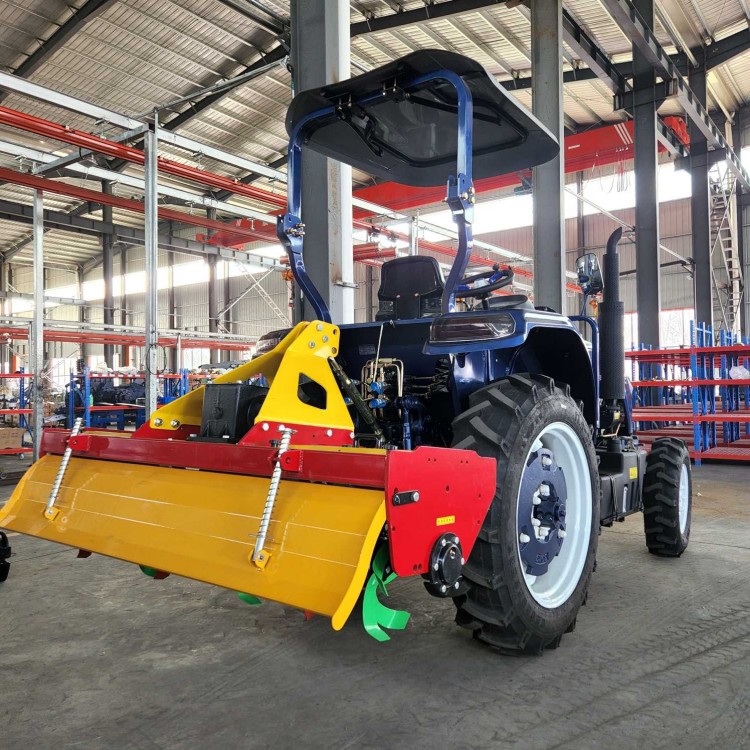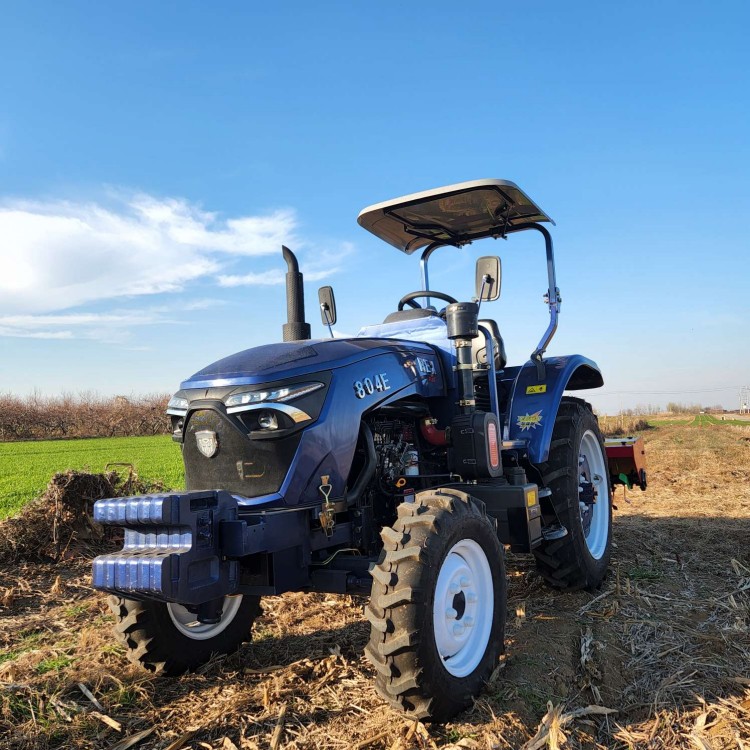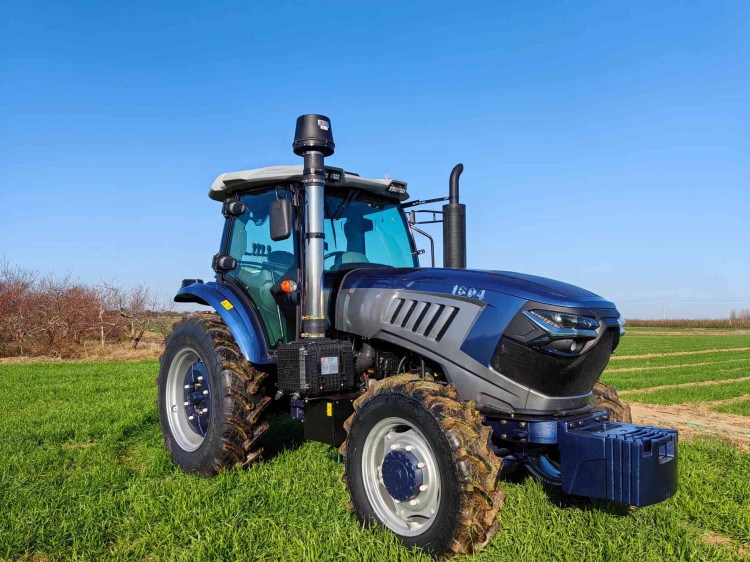The Road to Export for Chinese Agricultural Machinery Enterprises: Three Obstacles to Overcome
In the wave of globalization, agricultural machinery enterprises are facing unprecedented opportunities and challenges. With the advancement of agricultural modernization, the demand for high-quality agricultural machinery products in the international market is increasing day by day. However, when expanding into overseas markets, agricultural machinery enterprises must overcome three crucial obstacles: first, ensuring the high quality and innovation of their own products; Secondly, establish a comprehensive service system in the target market; The third is to deeply understand and adapt to the local market environment and policies and regulations.

Product: Quality and innovation are equally important
(1) Quality is the cornerstone
The quality of agricultural machinery products is directly related to agricultural production efficiency and farmers' income level. Therefore, agricultural machinery enterprises must ensure that the quality and performance of their products reach the international advanced level before exporting. This requires enterprises to strictly follow the quality management system in the production process, from raw material procurement, production and processing to finished product inspection, and strive for excellence in every link.
Raw material selection: High quality raw materials are the foundation for manufacturing high-quality agricultural machinery products. Enterprises should choose suppliers with good reputation and reliable quality to ensure the performance and stability of raw materials.
Production process: Advanced production processes and equipment are the key to improving product quality. Enterprises should introduce advanced production technologies and equipment from both domestic and foreign sources to improve production efficiency and product quality.
Finished product inspection: Finished product inspection is an important link in ensuring product quality. Enterprises should establish a comprehensive inspection system and conduct strict quality testing on each batch of products to ensure that they meet international standards and customer requirements.
(2) Innovation is the driving force
In the context of increasingly fierce global competition, innovation has become the key to enhancing the competitiveness of agricultural machinery enterprises. Enterprises should increase their R&D investment, promote technological innovation and product upgrading, in order to meet the international market's demand for high-quality and intelligent agricultural machinery products.
Technological innovation: Enterprises should pay attention to the development trend of international agricultural machinery technology, actively introduce and digest advanced technology, and promote product technological innovation and upgrading. For example, by introducing intelligent control systems, precision agriculture technology, etc., the intelligence level and operational efficiency of agricultural machinery can be improved.
Product upgrade: On the basis of maintaining product quality, enterprises should continuously introduce new products and upgrade products to meet the diverse needs of the international market. For example, developing adaptable and multifunctional agricultural machinery products based on the agricultural characteristics and crop types of different regions. 3. Customized services: With the increasing demand for personalized and customized products in the international market, agricultural machinery enterprises should also provide customized services. Tailored agricultural machinery products based on specific customer needs and operating environments to improve product applicability and market competitiveness.

Service: Establish a comprehensive after-sales service system
(1)The Importance of After sales Service
The after-sales service of agricultural machinery products is one of the important factors in customers' purchasing decisions. A comprehensive after-sales service system can enhance customer satisfaction and loyalty, and win a good reputation and market share for the enterprise.
Enhance customer satisfaction: High quality after-sales service can promptly solve problems encountered by customers during use, improving customer satisfaction and trust.
Enhance brand competitiveness: A comprehensive after-sales service system can enhance a company's brand image and competitiveness, attracting more potential customers and partners.
Promote market expansion: By providing high-quality after-sales service, enterprises can win customer reputation and recommendations, thereby expanding more market share and sales channels.
(2) Establish a comprehensive after-sales service system
In order to establish a comprehensive after-sales service system, agricultural machinery enterprises should take the following measures:
Establish service outlets: Set up service outlets in the target market to provide on-site maintenance, technical support, and parts supply services. This ensures that customers can receive timely help and support when encountering problems.
Training service personnel: Enterprises should regularly provide training and technical updates to service personnel to improve their professional skills and service level. This ensures that service personnel can accurately identify the problem and provide effective solutions.
Establish customer files: Enterprises should establish comprehensive customer files to record customers' purchase information, usage, and maintenance records. This helps businesses better understand customer needs and feedback, providing a basis for improving products and services. 4. Provide remote support: Utilize modern information technology methods such as remote monitoring, online diagnosis, etc. to provide customers with remote technical support and solutions. This can shorten service response time, improve service efficiency and quality.

Market and Policy: In Depth Understanding and Adaptation
(1) Market research and analysis
Before entering a new market, agricultural machinery enterprises should conduct in-depth market research and analysis to understand the scale, demand, competitive situation, policies and regulations of the target market. This helps businesses develop appropriate marketing strategies and product development plans, reducing market risks.
Market size and demand: Understand the agricultural scale, crop types, planting area, and agricultural machinery demand of the target market. This helps companies assess the potential and development space of the market.
Competitive situation: Analyze the competitive landscape and competitor situation of the target market, including market share, product features, pricing strategies, etc. This helps companies develop differentiated competitive strategies and enhance market competitiveness.
Policies and regulations: Understand the policy and regulatory requirements of the target market, including import policies, tariff policies, environmental policies, etc. This helps companies avoid the risks and losses caused by illegal operations.
(2) Adaptation and response to policies and regulations
There are differences in policies and regulations among different countries and regions, and agricultural machinery enterprises must adapt to and comply with local policy and regulatory requirements when entering new markets.
Import Policy: Understand the import policy requirements of the target market, including import licenses, tariff rates, import restrictions, etc. Enterprises should handle relevant procedures and documents in advance to ensure that their products can enter the market smoothly.
Environmental policies: With the increasing global awareness of environmental protection, countries have become increasingly strict in their environmental requirements for agricultural machinery products. Enterprises should pay attention to the environmental policy requirements of the target market and ensure that their products comply with local environmental standards and requirements.
Intellectual property protection: In the process of internationalization, agricultural machinery enterprises should pay attention to intellectual property protection, avoid infringing on others' intellectual property or facing infringement risks. Enterprises should establish a sound intellectual property management system and strengthen the application and protection of intellectual property rights such as patents, trademarks, and copyrights.
Dealing with trade barriers: Agricultural machinery enterprises may encounter various trade barriers in the export process, such as tariff barriers, technical barriers, anti-dumping, etc. Enterprises should actively respond to these challenges and seek suitable solutions. For example, by strengthening technological research and innovation, improving the technological content and added value of products; By strengthening brand building and market promotion, we aim to increase the visibility and reputation of our products; By strengthening international cooperation and exchanges, we can promote the process of trade liberalization and facilitation.

Case Study: Success and Lessons Learned
(1) Successful Cases
Taking a well-known agricultural machinery enterprise as an example, in the process of internationalization, the enterprise focuses on product quality and innovation, establishes a sound after-sales service system, and deeply understands and adapts to the policy and regulatory requirements of the target market. Through continuous technological research and innovation, the company has launched a variety of intelligent and efficient agricultural machinery products, meeting the diverse needs of the international market. At the same time, the company has established multiple service outlets in the target market, providing high-quality after-sales service and technical support. By gaining a deep understanding of the policy and regulatory requirements of the target market, the company successfully avoided the risks and losses caused by illegal operations. In the end, the company achieved significant performance and reputation in the international market.
(2) Summary of Lessons Learned
However, some agricultural machinery enterprises have encountered setbacks and failures in the process of internationalization. These enterprises often overlook the importance of product quality and innovation, fail to establish a sound after-sales service system, or have insufficient understanding of the policy and regulatory requirements of the target market. For example, some companies adopt low-quality raw materials and production processes in order to reduce costs and improve competitiveness, resulting in unstable product quality and poor performance; Some companies have not established service outlets or provided timely after-sales service and technical support, resulting in customers encountering problems that cannot be resolved in a timely manner during use; Some companies do not have a deep understanding of the policy and regulatory requirements of their target markets, resulting in their products being unable to enter the market smoothly or facing high tariffs and taxes. These lessons remind us that agricultural machinery enterprises must pay attention to product quality and innovation, establish a sound after-sales service system, and deeply understand and adapt to the policy and regulatory requirements of the target market in the process of internationalization.

Conclusion and Prospect
In summary, agricultural machinery enterprises must overcome three obstacles in the export process: product quality and innovation, after-sales service system, and market and policy environment. Only by ensuring excellent product quality, providing high-quality after-sales service, and deeply understanding and adapting to the policy and regulatory requirements of the target market, can enterprises stand invincible in fierce international competition. In the future, with the continuous advancement of global agricultural modernization and the changing international trade environment, agricultural machinery enterprises will face more opportunities and challenges. Therefore, enterprises should continuously strengthen technological research and innovation, improve product quality and service levels, enhance international cooperation and exchanges, promote trade liberalization and facilitation processes, in order to adapt to the changes and demands of the global market. At the same time, the government and all sectors of society should provide more support and attention to agricultural machinery enterprises, and jointly promote the healthy development and internationalization process of the agricultural machinery industry.
Original: My Farm
Source; Agricultural Machinery News Network
Related Products
Submitted successfully
We will contact you as soon as possible



